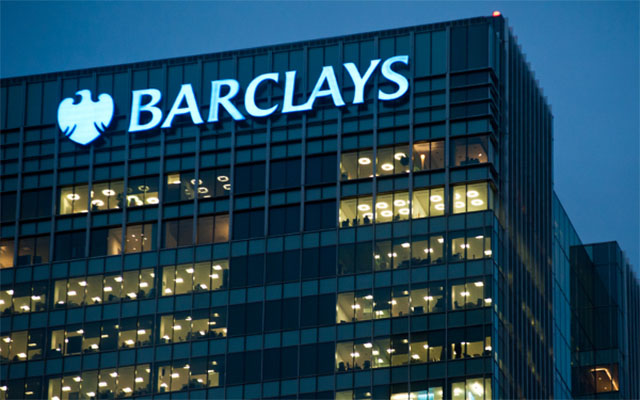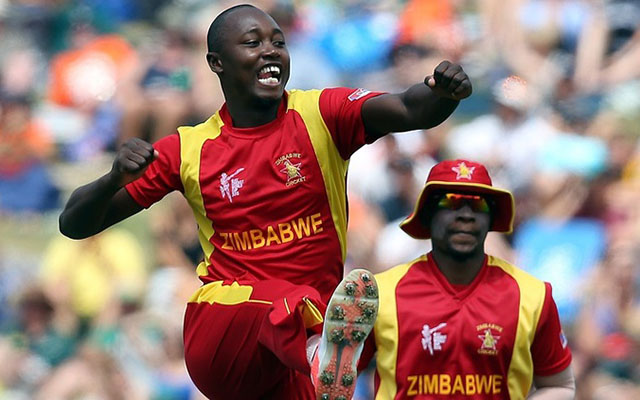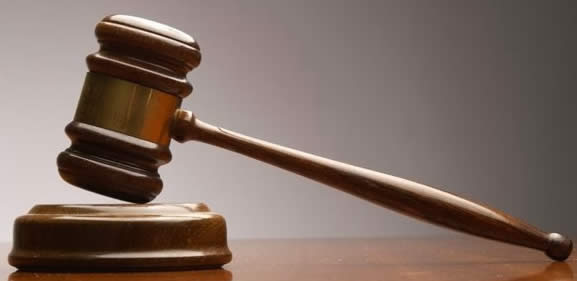Barclays, former executives charged with crisis-era fraud

LONDON. — Barclays, its former chief executive and three other ex-senior executives have been charged by UK authorities with fraud related to the emergency cash injections that saved the bank at the height of the 2008 financial crisis.
The Serious Fraud Office case against John Varley marks the first time the head of a global bank has faced criminal charges for activities during that period, when big lenders across the UK, US and Europe were being bailed out by taxpayers.
The SFO charged Barclays yesterday with three counts of conspiracy to defraud, false representation and unlawful financial assistance over its arrangements with Qatari investors who ploughed a total of £6,1bn into Barclays in June and October 2008.
The case centres on side deals with the investors, which were part of the cash infusions and not disclosed to the market. The two fund-raising allowed the bank to remain independent of the government at a time when Royal Bank of Scotland and Lloyds Banking Group had to accept taxpayer money.
During the period of the two investments, bank executives promised to pay Qatari investors a total of £322m for helping Barclays develop business in the Gulf. And in November 2008, Barclays agreed to provide a $3bn loan facility with the state of Qatar.
In addition to Mr Varley, the SFO also charged Roger Jenkins, the rain maker who put the deals together; Tom Kalaris, the trusted lieutenant of the head of the investment bank; and Richard Boath, who headed Barclays’ corporate finance business.
The SFO said in a statement: “The charges relate to Barclays Plc’s capital raising arrangements with Qatar Holding LLC and Challenger Universal Ltd, which took place in June and October 2008, and a $3bn loan facility made available to the State of Qatar acting through the Ministry of Economy and Finance in November 2008.”
Challenger was the investment vehicle of Qatar’s prime minister at the time, Sheikh Hamad bin Jassim bin Jabr al-Thani. The investors have not been accused of wrongdoing.
The four defendants and the company are due to appear at London’s Westminster Magistrates’ Court on July 3.
Barclays said in a statement that it was considering its position. “The charges arise in the context of Barclays’ capital raisings in June and November 2008. Barclays awaits further details of the charges from the SFO.” The bank added that the SFO had not yet decided whether to charge its Barclays Bank subsidiary over the $3bn loan. The parent group has already been charged with unlawful financial assistance.
The case marks the first time a UK bank has faced criminal charges directly related to the financial crisis and it strikes at the heart of Barclays status as one of the few big British banks to survive the period without government help.
“This is the most significant charging decision for the SFO in recent times if not ever. In the last few years, Barclays faced an unprecedented number of investigations by worldwide regulators but this SFO criminal prosecution is the most serious,” said Sarah Wallace of legal firm Irwin Mitchell.
Markets were roiling in 2008 when Barclays turned twice to the Qatari investors during fundraisings. In the second cash call in October of that year — a month after the bankruptcy of Lehman Brothers — Barclays tapped investors from the royal families of both Qatar and Abu Dhabi.
The side deals with Qatar sparked not only the SFO’s probe but also a regulatory one from the Financial Conduct Authority, which has examined whether the bank properly disclosed fees it paid to Qatar, and whether it secretly loaned money to Qatar to reinvest in the bank.
The arrangements have also prompted a $1bn lawsuit from the financier who put the Abu Dhabi investment together, Amanda Staveley, and a whistleblowing claim from Mr Boath.
Barclays, Mr Varley and Mr Jenkins were charged with three counts each of conspiracy to commit fraud by false representation in relation to both the June and October cash calls, plus unlawful financial assistance.
Mr Varley’s lawyer declined to comment. Mr Jenkins’ lawyer, Brad Kaufman at Greenberg Traurig, said: “Mr Jenkins intends to vigorously defend against these charges. As one might expect in the challenging circumstances of 2008, Mr Jenkins sought and received both internal and external legal advice on each and every aspect of the accusations levelled today by the SFO.”
Mr Boath and Mr Kalaris were charged with a single count of fraud by false representation over the June deal.
Mr Boath said yesterday that he would contest the charge “vigorously”.
He said: “The SFO’s decision to charge me is based on a false understanding of my role and the facts. I was not a decision maker and had no control over what the bank did in 2008. I repeatedly raised concerns about the decisions taken by the bank with both senior management and senior lawyers and was reassured that those decisions were lawful? There is no case for me to answer.”
The FCA said in 2013 that it would fine the bank for improper disclosure to the market but then stayed its case pending the SFO’s criminal investigation.
The FCA reopened its case earlier this year and is yet to decide whether to amend its earlier findings. The FCA said it “welcomed a fair and transparent hearing on the basis of the charges set out today by the SFO”.
Lawyers at RPC said they were considering whether to file new civil claims on behalf of shareholders who participated in the 2008 fund-raisings. “Shareholders who subscribed for shares and suffered losses as a result of any deliberately misleading information or omissions deserve redress,” said Simon Hart, a partner.
The five-year investigation by the SFO, dubbed Cadmium by the bank and Mirror by the SFO, received special funding from the Treasury.
The charges come after the Conservative party pledged to abolish the SFO and roll it into a wider crime-fighting agency. Theresa May, the prime minister, has a history of tensions with the agency dating back to her time as home secretary. But the result of the general election earlier this month, which eroded Mrs May’s majority, has raised questions over whether those plans will materialise.
Barclays shares were down 0,2 per cent at 206,4p in late yesterday morning, suggesting investors have either priced in the risk of a criminal charges against the bank or they believe it will have a limited financial impact in the short term.
Ian Gordon, banking analyst at Investec, said: “Given litigation uncertainties — Barclays has yet to see an indictment or statement of facts — we currently assume that no provision can reasonably be assessed in Q2 2017. Indeed, we suspect that this saga could run for years.” — FP.
Timeline
September 2007 Depositor run on Northern Rock marks start of financial crisis in the UK.
June 2008 Barclays announces £4,5bn share issue, underwritten by Qatar Holding, Qatari prime minister Sheikh Hamad bin Jassim bin Jabr al-Thani (HBJ), and Temasek of Singapore, among others.
Sept 2008 Lehman Brothers’ bankruptcy rocks financial markets across the world.
Oct 2008 Barclays announces second £7.3bn fundraising from Qatar Holding, HBJ and Sheikh Mansour bin Zayed al-Nahyan of Abu Dhabi.
June 2012 Barclays reveals probe into the fundraisings by UK markets watchdog. The bank had just paid a separate £280m fine for Libor-rigging that led to resignation of then chief executive, Bob Diamond.
Jan 2013 The Financial Times reveals that Serious Fraud Office and Financial Conduct Authority are looking at whether Barclays loaned Qatar money that was used to invest during the cash call.
Jan 2016 PCP, a private equity company headed by British businesswoman Amanda Staveley that advised Sheikh Mansour on the October 2008 fundraising, files a $1bn lawsuit against the bank, alleging it failed to reveal side deals with Qatar that were part of the deal.











Comments